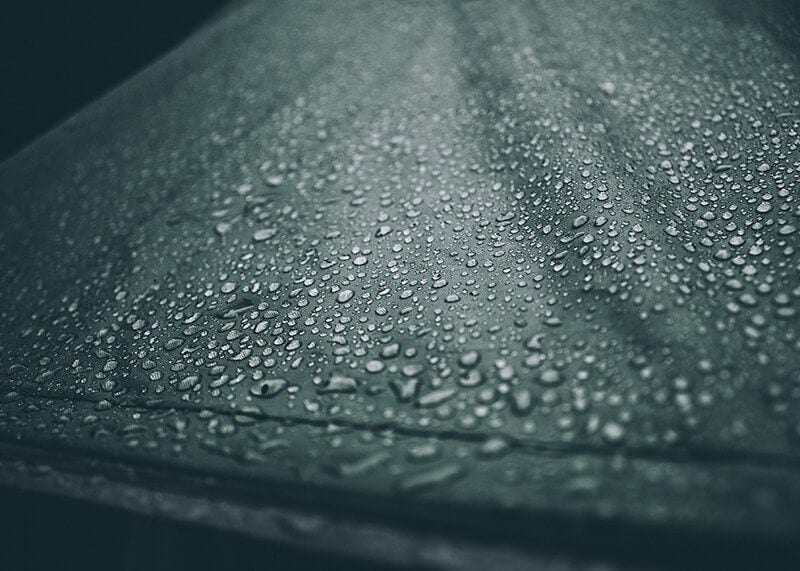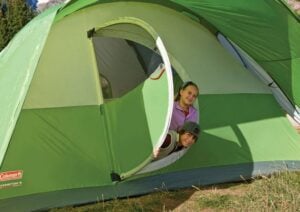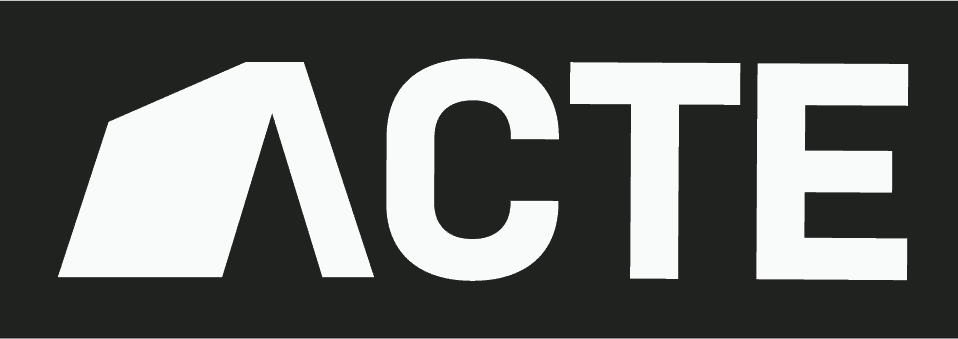You’re considering buying a new camping tent. But before you pull the trigger, you want to make sure that you’re getting the best possible deal. It’s important to do your research and evaluate all of your options before making a purchase.
In this blog post, we’ll give you fifteen tips for evaluating the price of a tent so that you can be confident in your decision. We’ll help you figure out what to look for in a quality product, how to compare prices between different sellers, and ultimately help you make an informed decision about which tents are best for you.
So whether you’re an experienced camper or just starting out, read on for some friendly advice!
How much does it cost to buy a camping tent?
Depending on the season, camping tents can have a price range starting from $50 to $500 or more. Of course, the final price can vary widely depending on the features and materials that you choose.
When shopping for a camping tent, it’s important to consider your needs and budget. Consider the following questions:
- How often do you plan to go camping?
- What type of camping trip will you take? (backcountry, car camping, etc.)
- Are you looking for a basic model or a premium tent?
- Do you need a tent that can withstand harsh weather conditions?
All of these factors will play into the final price of the product.
Why is evaluating a tents cost important?
If you’re looking to buy a new tent, or replace your current camping tent, you should read this so you know how to best evaluate tent cost. This is important so you don’t overspend or purchase cheap tents in the future.
A tents cost is important to compare because it will affect your tent camping experience. A budget tent might be less sturdy and more likely to leak, while a more expensive tent might offer more features and better quality construction.
When evaluating tent cost, there are a few key factors to keep in mind:
- The size and type of tent (dome tents, backpacking tents, cabin tents, etc.)
- The materials used in construction (fiberglass poles vs aluminum)
- The quality of the stitching and seals
- Additional features (e.g. rainfly, vestibule, etc.)
- The reputation of the manufacturer
By taking the time to evaluate your needs and budget, you can be sure that you’re getting the best possible deal on a quality product.
17 tips for evaluating the price of a tent
1. Tent Size
When considering tent cost, size is an important factor to keep in mind. Larger tents tend to be more expensive than smaller tents, and this is due to a few different factors:
- More materials are needed to construct a larger tent, which drives up the cost of production.
- Larger tents require more space to store and transport, which can add to the overall cost of the product.
- Larger tents are often heavier and more difficult to set up, requiring more time and effort on the part of the camper.
All of these factors contribute to the higher price tag associated with larger tents.
2. Type of Tent
The type of tent you buy will also affect the overall cost. Tents can be divided into three categories: backpacking tents, car camping tents, and family camping tents.
- Backpacking tents are designed for people who plan to hike and camp in remote areas. A backpacking tent is lightweight and compact, making them easy to transport and set up. People also call them ultralight tents. They typically cost between $50 and $200.
- Car camping tents are larger and heavier than backpacking tents, but they’re still relatively lightweight and easy to set up. They’re designed for people who plan to camp near their vehicles. Car camping tents range in price from $50 to $400.
- Family camping tents are the largest and heaviest type of tent (typically cabin tents or dome tents) designed for people who plan to camp with a large group of people. They can range in price from $50 to $500 or more.
The best camping tents are not always the most expensive. It’s important to consider your needs and what type of camping you’ll be doing before making a purchase.
3. Tent Material Quality
The quality of the materials used in a tent is an important factor to consider when evaluating the price. Cheap tents are often made with low-quality materials, which can lead to problems such as leaks, tears, and insufficient insulation.
When shopping for a camping tent, be sure to ask about the materials used in construction. Look for tents made with waterproof and breathable materials, such as nylon or polyester. The seams and seals should also be watertight, in order to prevent leaks.
If you’re looking for a high-quality tent that will last for years, be prepared to pay a higher price tag. However, it’s worth it to invest in a quality product that will keep you safe and comfortable on your camping trips

4. Level of Waterproofing
All tents are designed to protect campers from the elements, but there is a big difference between basic waterproofing and a watertight seal.
Cheap tents often have basic waterproofing, which means that they can only protect you from light rain or mist. If you’re camping in a wet or humid environment, or if you’re expecting heavy rain, you’ll need a tent with a watertight seal.
Waterproofing is not just about keeping moisture out; it’s also about ventilation. Good waterproofing will keep the inside of your tent dry while allowing air to move through the fabric, preventing condensation from building up.
5. No-See-Um Mesh Screening
No-See-Um Mesh Screening is necessary to keep bugs out of your tent, and without it, you may find yourself being eaten alive by mosquitoes and other pests.
If you’re worried about bugs, it’s important to make sure that any tent you’re considering purchasing has No-See-Um Mesh Screening included in its design. Otherwise, you may end up spending more money in the long run on bug repellent and other products to try and keep the bugs away.
If this is important to you, consider looking into screen room tents for the best protection.
When comparing prices, be sure to ask about the quality of the mesh screening that’s included in each tent. The better the screening, the less likely you are to be bothered by bugs during your camping trips.
5. Ventilation and Privacy Features
The amount of ventilation a camping tent offers is essential to making a quality purchase. A good ventilation system will keep the inside of your tent dry and cool, even on hot days. Built-in mesh panels or roof vents will prevent condensation from building up, which can cause the fabric to become wet and heavy.
Privacy features are also important, especially if you’re camping with a group of people. A good tent will have separate rooms or compartments, allowing campers to have some privacy from one another. This is especially important for families with small children.
When comparing prices, be sure to consider the ventilation and privacy features of each tent. If these features are important to you, they should be at the top of your list when making a purchase.
6. Built-in Groundcloth
A built-in ground cloth is a feature that’s found in high-quality camping tents. It’s a piece of fabric that’s attached to the bottom of the tent, and it serves as a barrier between the ground and the tent floor.
This is a helpful feature, especially if you’re camping on rough or uneven terrain. It’s an essential piece of gear for any camper, as it protects the bottom of the tent from abrasion and moisture.
They’re also super handy to have to help keep the inside of your tent clean and free of dirt and mud.
7. Floor Matting or Tarpaulin
If you’re not using a built-in ground cloth, it’s important to have floor matting or tarpaulin to protect your tent floor. This is an extra layer of protection that will prevent the fabric from becoming wet and damaged.
A good floor matting or tarpaulin will also keep you and your floor space dry if you’re camping on wet or uneven ground.
When comparing prices, be sure to ask about the quality of the floor matting or tarpaulin that’s included with each tent and its ability to protect your tent floor. The better the quality, the longer your tent will last.
8. Stakes, Guy Lines, and Tensioners
Camping tents need to be secured to the ground in order to stay upright, and stakes are the most common way of doing this. However, not all stakes are created equal. Cheap stakes can easily bend or break, which can be dangerous if you’re camping in a windy area.
Guy lines are another important piece of gear, as they help to keep the tent stable in windy conditions. Good quality guy lines will be made from sturdy materials and will be resistant to stretching and tearing.
Tensioners are also important, as they help to keep the fabric of the tent taut. A good quality tensioner will be adjustable so that you can fine-tune the tension to your liking.
If these features are important to you, they should be at the top of your list when making a purchase.

9. Zipper Fabric Details and Cleanliness
One of the most important features of a camping tent is its zipper. A good quality zipper will be made from sturdy materials and will be resistant to wear and tear. It’s also important that the zipper fabric is treated with a water-resistant coating, as this will help keep moisture out of the tent.
Zipper sliders are another important detail to look for. A good slider will be easy to operate, even with gloved hands. It’s also important that the sliders are made from a durable material that won’t rust or corrode.
When comparing prices, be sure to ask about the quality of the zipper fabric and sliders. The better the quality, the longer your tent will last.
10. Tent Structure and Design
A good quality tent will have a symmetrical design, which is important for stability. It’s also helpful if the tent has a ridge pole, as this will help to keep the fabric taut and prevent it from sagging.
The tent’s structure and design should also be considered when making a purchase. Backpacking tents are typically smaller and lighter weight than tents that are designed for car camping.
When comparing prices, be sure to consider the size and weight of the tent. The bigger and heavier the tent, the more it will cost.
11. Pole Durability
Another important factor to consider when purchasing a camping tent is the durability of the poles. Cheap poles can easily bend or break, which can be dangerous if you’re camping in a windy area.
Good quality poles will be made from sturdy materials and will be resistant to stretching and tearing. They’ll also be adjustable so that you can fine-tune the tension to your liking.
12. Breaking Point Push/Pull Force
As you can imagine, the amount of force required to break a tent pole is directly related to the price of the tent. The higher the Breaking Point Push / Pull Force, the more expensive the tent will be.
This may not be important to everyone, but it’s definitely something to consider if you’re looking for a durable tent.
13. Tent Weight and Packed Size
When comparing tent prices, be sure to consider the weight and packed size of the tent. Be sure to ask about the weight and packed size of each tent. The smaller and lighter the tent when packed, the more expensive it will be.
14. Manufacturer Warranty Length
A good quality tent will come with a manufacturer’s warranty, which typically covers defects in materials and workmanship. The longer the warranty, the more expensive the tent.
When comparing prices, be sure to ask about the length of the manufacturer’s warranty. The longer the warranty, the more expensive the tent will be.
15. Camping Seasonality
One factor that you may not have considered when purchasing a camping tent is its seasonality. Tents that are designed for winter use typically have more features, such as insulation and water-resistant coatings, than tents that are designed for summer use.
The downside of these features is that they make the tent heavier and more expensive.
When comparing prices, be sure to ask about the seasonality of each tent. The more features a tent has, the more expensive it will be.
16. US Patented Protection Designated Tent
As you may know, the US Patent and Trademark Office (USPTO) is responsible for issuing patents to inventions that are new, non-obvious, and useful. A patent provides inventors with exclusive rights to their invention for a period of 20 years.
When you’re considering the price of a tent, it’s important to know if the design has been patented. If it has, then the manufacturer has exclusive rights to that design and can charge whatever they want for it.
So, the next time you’re considering purchasing a camping tent, be sure to ask the seller if the design has been patented. If it has, the price is likely to be higher than a non-patented design.
17. Tent Accessories
Finally, another factor to consider when purchasing a camping tent is the cost of its accessories. Tents that come with a rainfly, footprint, and carrying case typically cost more than tents that don’t.
When comparing prices, be sure to ask about the cost of the accessories and the cost to replace the accessories.

3 Tips to help you get the best deal on tent prices
Now that you know what to look for when purchasing a camping tent, here are a few tips to help you get the best deal:
1. Compare Prices
It’s always a good idea to compare prices before making a purchase. This is especially true when it comes to camping gear, where the prices can vary quite a bit.
Be sure to ask about the weight, packed size, and seasonality of each tent before making your decision. The more features a tent has, the more expensive it will be.
2. Consider Buying Used
If you’re not too concerned about having the latest and greatest camping gear or staying up to date on the newest tent models, consider purchasing a used tent.
There are plenty of online and offline marketplaces where you can find used camping gear and cheaper tents at a fraction of the cost of a new one. We recommend making sure you inspect the tent for any damage before purchasing it.
3. Rent from a Local Outdoor Store
If you’re not sure whether camping is for you, or if you just want to try out a few different tents before making a purchase, renting from a local outdoor store is a great option. This will allow you to test out different tents without spending a lot of money. Just be sure to return the tent in good condition so that you can use it again in the future.
Frequently Asked Questions
When can I get the best price for a camping tent?
The best time to get the best price for a camping tent is typically right before the start of the camping season. This is when retailers are most likely to put tents on sale in order to make room for new inventory.
However, keep in mind that some retailers only put tents on sale shortly before the end of the season. So, if you’re not in a hurry to purchase a tent, it might be worth waiting until closer to the end of the season to get a better deal.
What’s the average price for a camping tent?
The average price for a camping tent falls somewhere in the range of $50 to $200. However, there are many factors that can affect the price, such as the type of tent, its features, and the accessories it comes with.
How do I know if a design has been patented?
If a design has been patented, the manufacturer will have exclusive rights to that design and can charge whatever they want for it. To find out if a particular design has been patented, simply ask the seller.
Can I buy a used camping tent?
Yes! There are many online and offline marketplaces where you can find used camping gear at a fraction of the cost of a new one. Just be sure to inspect the tent for any damage before purchasing it.
How do I know what size tent I need?
The best way to figure out what size camping tent you need is to measure the amount of space you have available and compare it to the tent’s dimensions. Most tents are designed to accommodate either 1, 2, or 3 people, so be sure to take that into account when making your decision.
How long does a typical manufacturer’s warranty last?
A typical manufacturer’s warranty lasts anywhere from 1 to 10 years. However, it’s important to note that most warranties only cover manufacturing defects and not accidental damage.
Can I rent a camping tent?
Yes! Many local outdoor stores offer tent rentals. Just be sure to return the tent in good condition so that you can use it again in the future.
Recap and Further Reading
Campers are always on the lookout for quality information when they’re shopping around. To help campers find what they need, this article compiled a list of helpful tips that will make you an informed buyer.
The more features a tent has, the more expensive it will be. So if your goal is to get the best deal possible, consider buying used and renting from a local outdoor store to test out different tents until you’ve found one that suits your needs without having to spend too much money in search of perfection!
Keep these factors in mind when comparing prices so that you can come away with not only an affordable camping tent but also one designed for your needs!
Happy camping!





